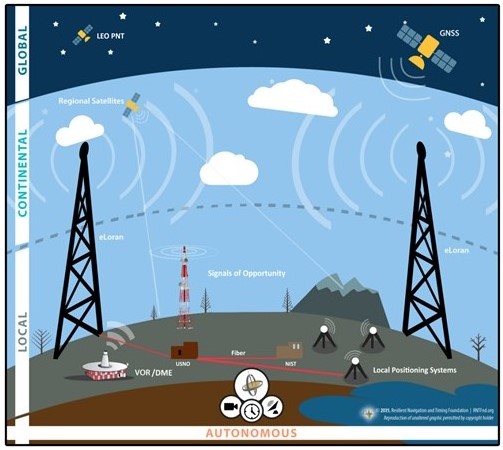Image: RNT Foundation
What’s New: An item in Space Review about the importance of backup systems for GPS.
Why It’s Important:
- Innumerable systems, applications, and infrastructures depend on GPS for proper operation. When things go wrong with GPS reception, those system can go really wrong.
- We have used this example often, but a commercial passenger aircraft nearly impacted a mountain because of GPS interference. But for an air traffic controller noticing the flight path deviation and “backing up GPS” by calling the plane on the radio and giving vectors, it would have been a tragedy.
What Else to Know: This article is based on the London Economics paper about GPS disruptions in aviation we commissioned. But it is a different and unique perspective on the paper than we have seen before and is worth a read.

Staying on course: The vital role of GPS backup systemsby Lauren Miller
|


